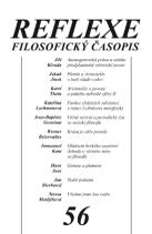Husserl’s Mereology and its Significance for Phenomenology
Husserl's basic distinction between independent and dependent parts grows from the general systematics of Logical Investigations and it provides the necessary working tools for a fuller development of this very systematics. Whereas independent parts can be thought of as not being connected to their proper wholes, dependent parts defy any such attempt. Thus we reach a general law that expresses a “logical” need for a dependent part to be completed, and prescribes in what way its completion takes form and what kind of parts can satisfy it. According to Husserl, the specific content of a law can be obtained through a variation which uses the being of the dependent part as an index for discerning general limits, or lowest kinds, of the parts that can complete it. The paper draws further conclusions for the significance of the concepts of variation and foundation in Husserl's philosophy, for Husserl’s idea of syntactic laws, and for understanding the distinction between dependent and independent parts as a real formal distinction.
Backlinks: Reflexe 36
